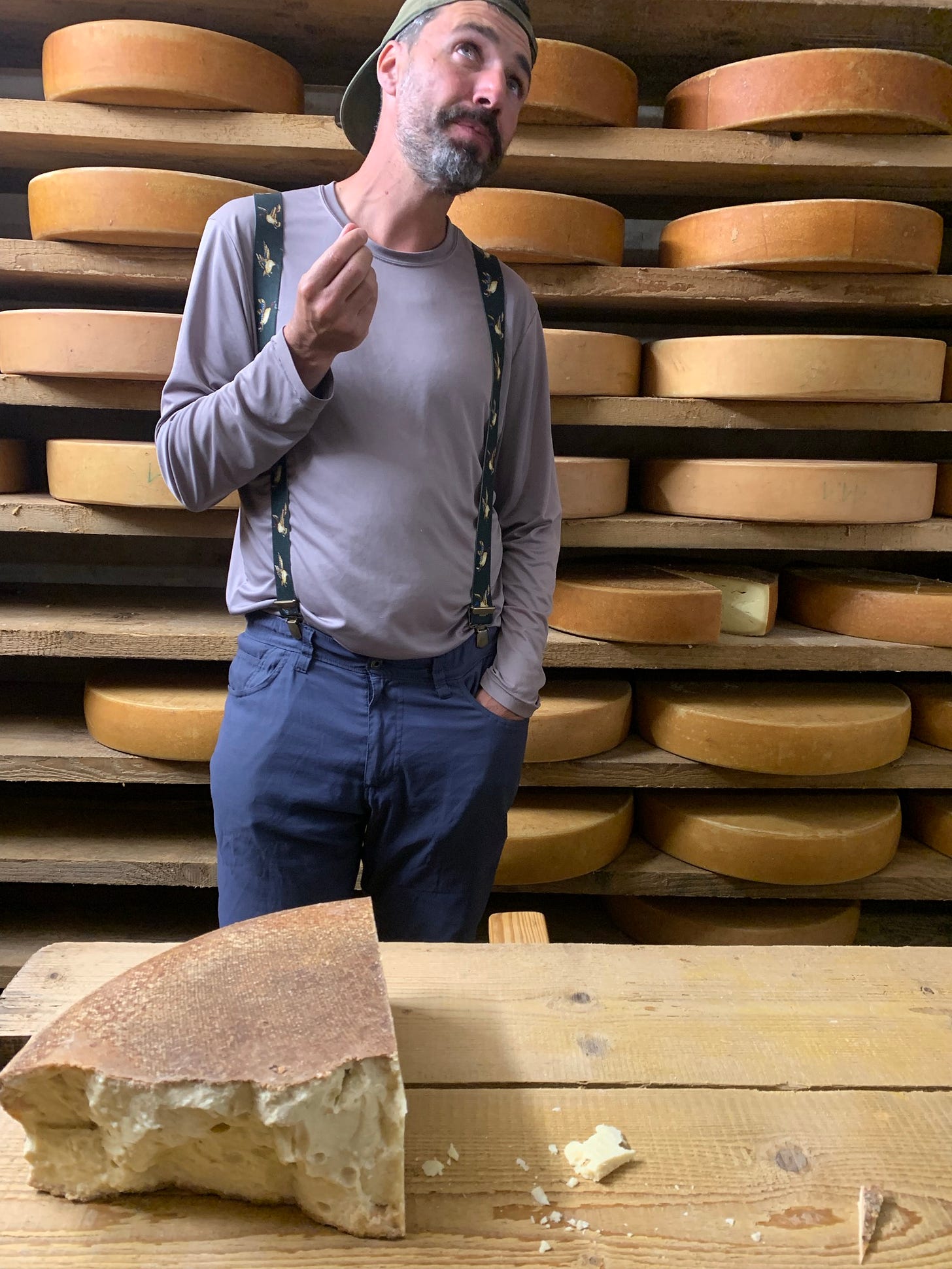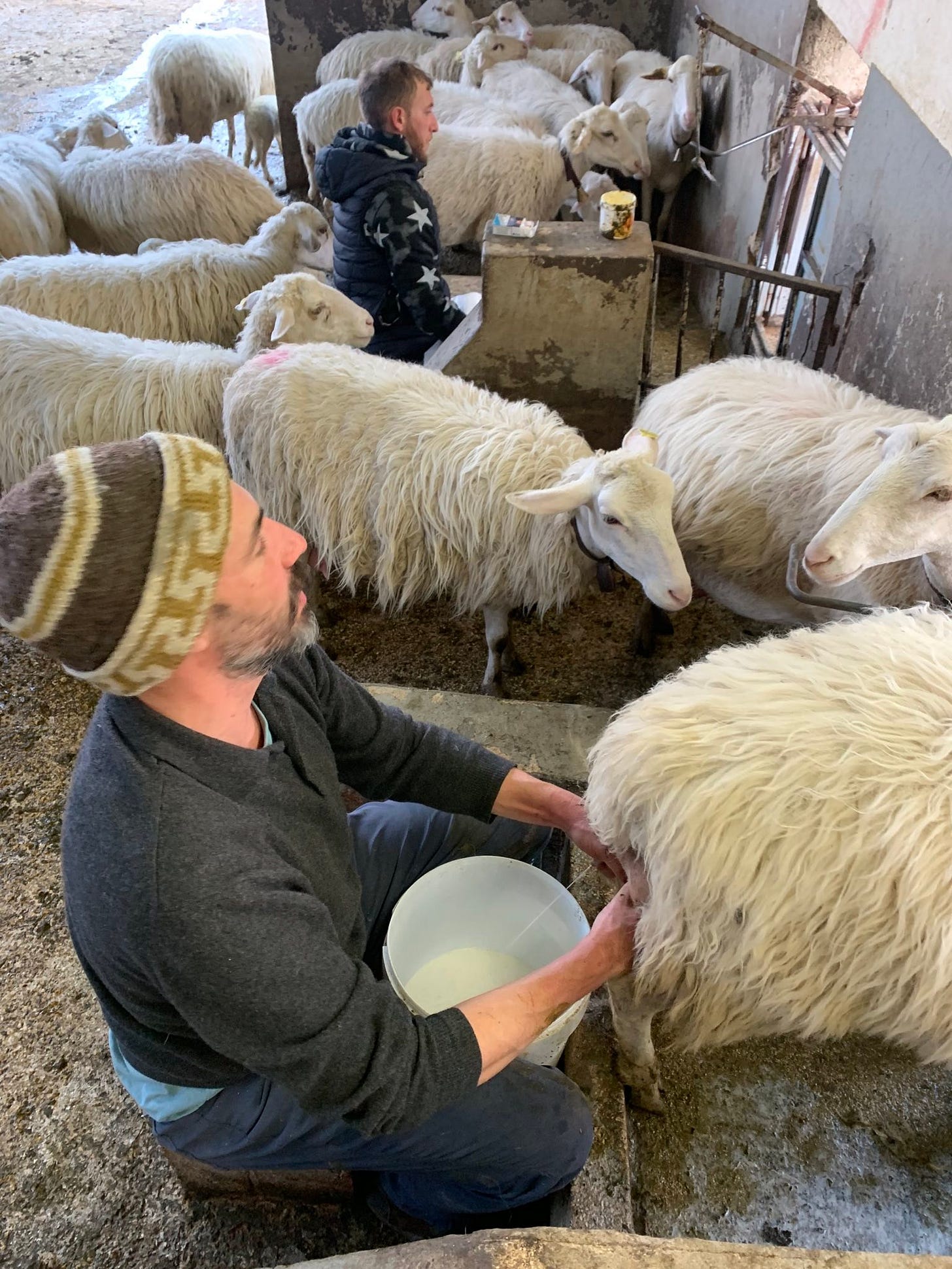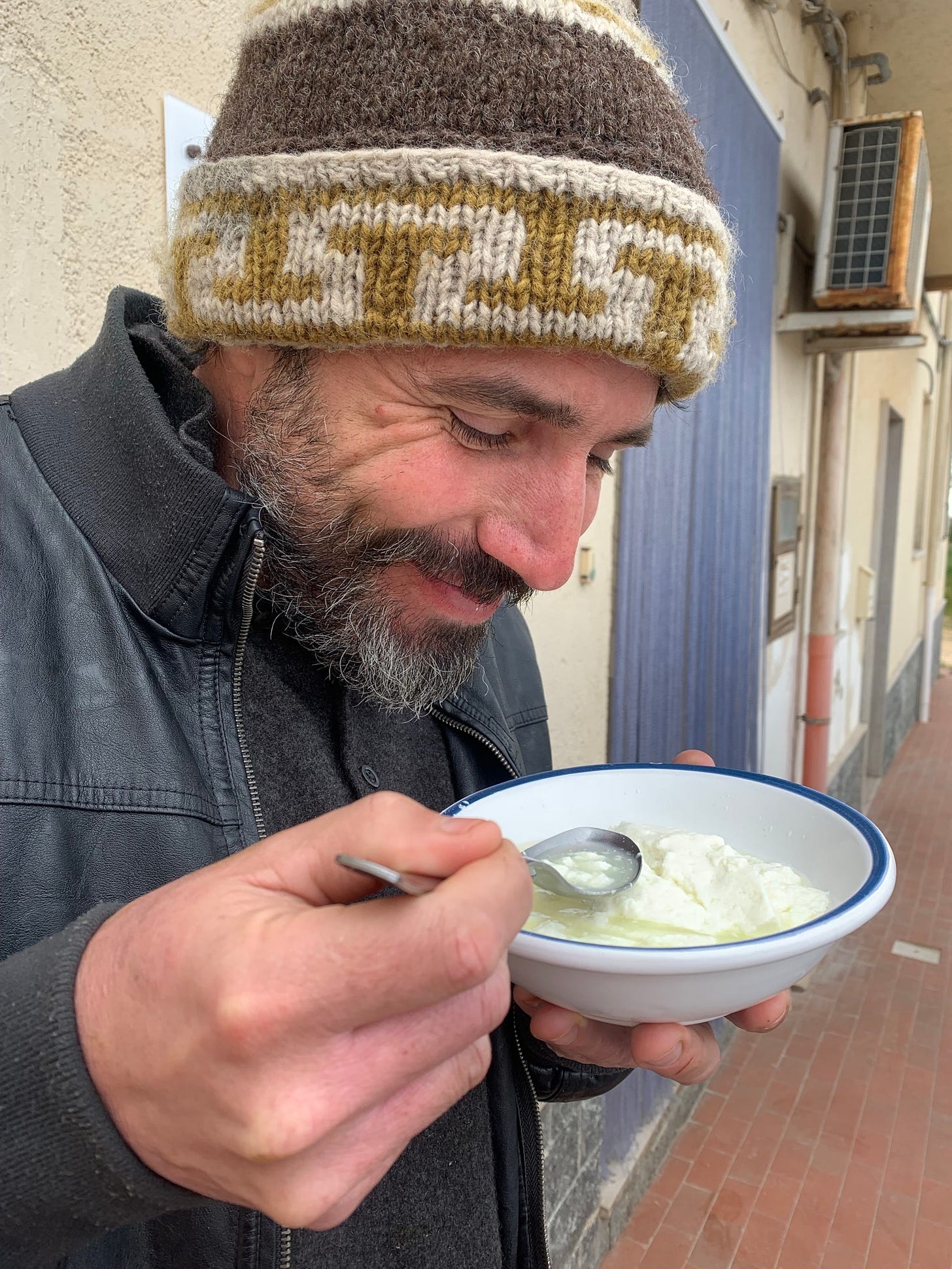How and why I travel the way I do.
A review of how I got this project started, and my methods for making connections
I flew out of LA on August 8th, 2021. There wasn’t much of a plan, I was following an instinct, allowing myself to get pulled in the direction that seemed right in my soul. I wanted to really put the idea of following my heart to the test. To fully trust and dive into the journey. I was heeding the call to adventure, with as little concern for financial rationality as possible. I am not sure how it would work for other people, but for me it’s been the best decision I’ve made in my life.
The idea was to volunteer for cheesemakers, herders, pastoralists, and farming communities. To learn about different ways of raising dairy livestock, interacting with landscapes and ecosystems, and fermenting milk into healthy foods representing more sane food systems. Most of us understand the problems of current industrial systems and paradigms, I’m interested in experiencing talking about the alternatives. I had the first place to work lined up in the Italian alps, and I had made the decision to leave the US about three weeks prior to my flight. Buy the ticket, take the ride. I didn’t know how long the trip would be, but planned on being out for a year at least. I packed up my truck solid, with everything I own stashed in the bed. I built a small wall around it to keep the rodents out, and covered the tires to prevent the Southern California sun from eating them up.
People often ask me how I find the places I end up visiting, and how I manage to travel the way that I do. I have a mixture of approaches. It is a spectrum between contacting people and setting up definite work trades before hand, and just going places and meeting people spontaneously. The first thing I do when I’m interested in the cheeses of a region is read as much information as I can find, and reach out to:
1. Journalists who have written articles.
2. Academics who have published papers or done fieldwork.
3. Organizations set up to promote cheeses or regional culinary traditions.These people tend to be excited that I am interested, and often introduce me to the farmers, herders, and makers.
4. Individual cheesemakers or families who may have a presence online, especially Instagram. My feed is like a resume, showing that I am serious and what my approach is.
5. Chefs and other food enthusiasts who are knowledgeable about local dairy and cheese traditions.
My approach is to knock on a lot of doors. I email and direct message many people. A small percentage of them respond. Sometimes multiple people will give me the same name of a person who “you need to get in touch with”. Often this person can end up helping me make many connections. I usually need to find at least one person who speaks the local language as well as English who can either serve as a interpreter and join me on visits, or can get in touch with the producers and explain to them what my project is. In the future I hope to be able to hire local guide/interpreters, like I did in North Albania. This is the most fruitful approach, and I am happy to put money into the local economy, encouraging a responsible type of experiential culinary tourism.
At other times I simply hear about a region that has interesting dairy and cheese traditions, and go there without prior contacts. In many countries you can find guest houses that are similar to agrotourismos, and they either make cheese there, or know local people who do. Sometimes I just start walking, and run into herders out grazing, or see farmhouses with the telltale signs of dairying. I’ve found you can learn a great deal, and meet all kinds of folks, if you’re willing to walk a lot with an inquisitive, observant mindset. There’s a lot to be said for throwing yourself out there with a level of openness, and willingness to go through awkward situations due to language barriers. I’ve found most pastoral people to be incredibly welcoming, and happy that I am interested to see how they live and raise animals, make cheese and prepare food.
When I started traveling internationally in 2016, I was finding a lot of places to volunteer on websites like Workaway and the Wwoof networks for various countries. There are plenty of amazing hosts on these sites who are all set up to host volunteers. You agree to work a certain number of hours a week (usually 25 to 30) in exchange for a place to stay and meals. It was through doing this type of work trade in non-cheese related contexts that I realized the value of this form of travel. By staying in one place for a couple of weeks or longer, with a local family, you get a completely different travel experience. You hardly spend any money. And you are learning skills by performing them, seeing how things such as building, cooking, gardening, construction, or working with livestock are done in different cultures.
I still find hosts through these websites, but have taken this work trade concept and just reach out and offer it to people. Most dairy farmers and cheesemakers have more than enough work to share with someone who has basic skills working with livestock and doing creamery tasks. I try not to take my limited experience as a cheesemaker too seriously. I never want to be above menial labor such as shoveling shit, repairing fences, chasing goats, and catching chickens. Usually, them taking me is more of a burden on them, but they do so anyways, out of kindness, or pride in their work.
I choose to not think of these arrangements in monetary terms, like “well I would be getting paid this much an hour for doing this work back in the US”. I’ve never really been comfortable with the idea of selling my time and labor. It’s never felt right to me. Our time on this planet is precious, and I feel my life is cheapened when I sell a part of it. There are other types of exchange, and other forms of capital, such as experiential, social, spiritual, intellectual, and cultural. My consciousness and palate have been expanded in so many ways, by exposure to new places and cultures, as embodied in their cuisine. These experiences have changed my life, and are worth more than any pile of gold.
It’s always seemed like a bad idea to get my life into the position where I require a lot of money to maintain it. I know it’s not this simple for everyone, but I’ve gotten very good at living with very little. It is the years spent becoming comfortable with a lack of so called financial security or job stability that have allowed to do what I’m doing now. I’m not recommending the life I live to everybody, I don’t have 8 simple steps to the good life to offer you. I have no plan. But I have found a path, that looks like it winds up an intriguing mountain, to a good viewpoint. I’m doing what I feel called to do, and finding my voice and medicine in the process. The book is open, and is writing itself as I walk, with faith in the decency of humankind, and the essential benevolence at the heart of existence.












Way to live the path, walk the walk, learning by doing and listening. Never stopping but when you do letting the unimagined experience soak on in. Ride that shepherd's magic carpet and keep ripening. We are cheering you on in the American West!
Well said, well done! And though I am a bit envious of your freedom to travel at will, I am thoroughly enjoying your posts/videos/ substack etc. I catch up with your daily musings over a morning cup of coffee before going to the barn. My husband calls it my daily trip around the world. Keep on trekking!